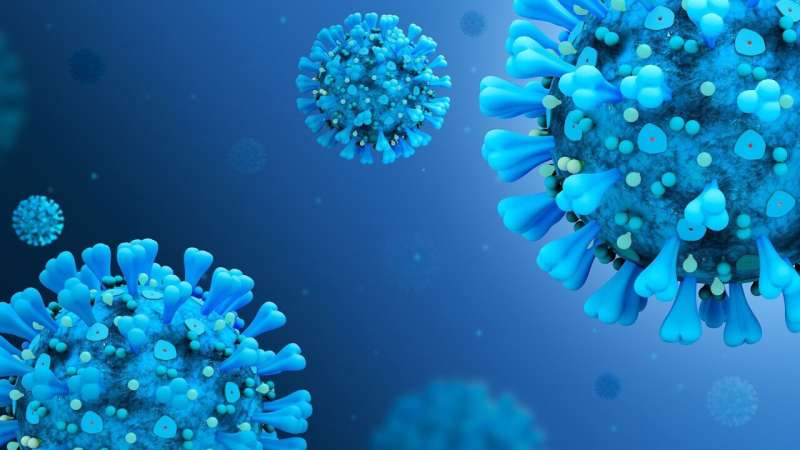Study shows cell membrane–bound enzyme is essential for COVID-19 infection

The membrane-bound form of angiotensin converting enzyme 2 (ACE2) is essential for enabling infection with SARS-CoV-2, the virus that causes COVID-19, according to a study published in the journal Cell.
There are two forms of ACE2—a full-length form that can bind to the cell membrane of healthy host cells and a shorter, soluble form that circulates in the blood in small amounts. While both forms contain the same genetic sequence used by the receptor binding domain of the SARS-CoV-2 spike protein, soluble ACE2 lacks the ability to anchor to the cell membrane.
The current findings demonstrate that the full-length form is essential for SARS-CoV-2 infectivity while the soluble form does not promote infectivity, according to Daniel Batlle, MD, the Earle, del Greco, Levin Professor of Nephrology/Hypertension and lead author of the study.
"These findings are important to the COVID-19 field of promising therapies that involve soluble ACE2 proteins," Batlle said. "They show that very low concentrations do not promote infectivity for SARS-CoV-2, whereas a high dose—which is the one targeted for the neutralization of SARS-CoV-2—has the expected beneficial effect achieved by intercepting the viral spikes such that they cannot reach the membrane bound ACE2."
Previous work from the Batlle laboratory and others have demonstrated that when soluble ACE2 proteins were administered in high doses to mice infected with SARS-CoV-2, viral replication was prevented and overall survival markedly improved.
However, other work has suggested that in a human kidney cell line, lower concentrations of soluble ACE2 may actually increase SARS-CoV-2 infectivity. This prompted a team of international investigators led by Batlle to perform further investigations using low concentrations of soluble ACE2 proteins.
In the current study, the team assessed viral infectivity by measuring RNA levels in the same human kidney cell line infected with SARS-CoV-2, which was exposed to very low concentrations of soluble ACE2. They also performed studies in human lung and kidney organoids infected with the SARS-CoV-2.
Overall, they found that lower concentrations of soluble ACE2 did not enhance SARS-CoV-2 infectivity in the kidney cell line or in the lung and kidney organoids. Additionally, using a new model of kidney organoids that lacked ACE2, the investigators discovered that SARS-CoV-2 infectivity is not possible in the absence of ACE2. This was the case for both low and high concentrations of soluble ACE2 which had no impact on SARS-CoV-2 infection, demonstrating that membrane bound ACE2 is the essential receptor for SARS-CoV-2 infection, according to Batlle.
"Soluble ACE2 at low concentrations are found in normal people and patients with COVID-19 and cardiovascular disease at risk for COVID-19 complications, therefore it is reassuring to know that soluble ACE2 cannot promote infectivity in humans," Batlle said.
More information: Daniel Batlle et al, Evidence in favor of the essentiality of human cell membrane-bound ACE2 and against soluble ACE2 for SARS-CoV-2 infectivity, Cell (2022). DOI: 10.1016/j.cell.2022.05.004
Journal information: Cell
Provided by Northwestern University




















